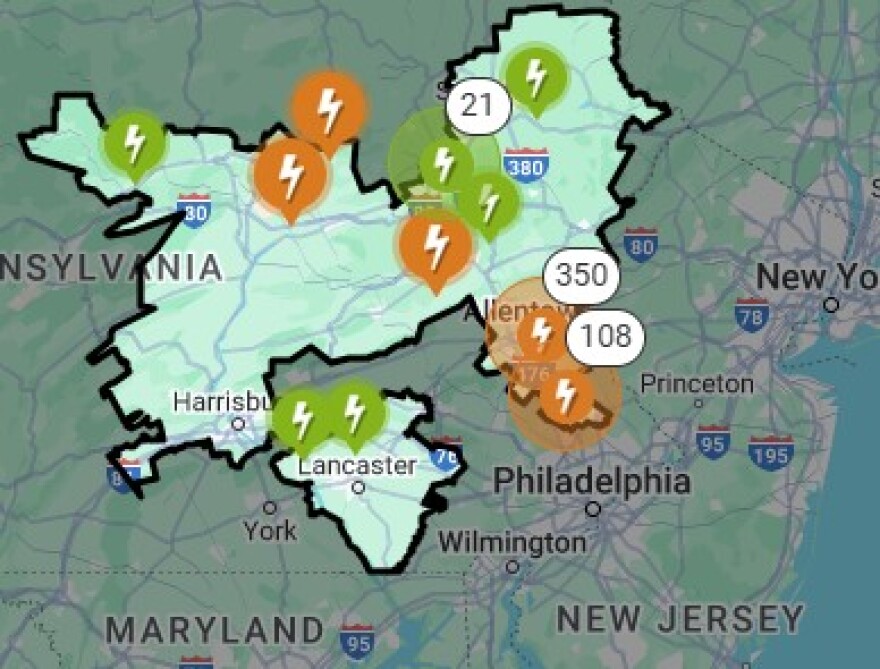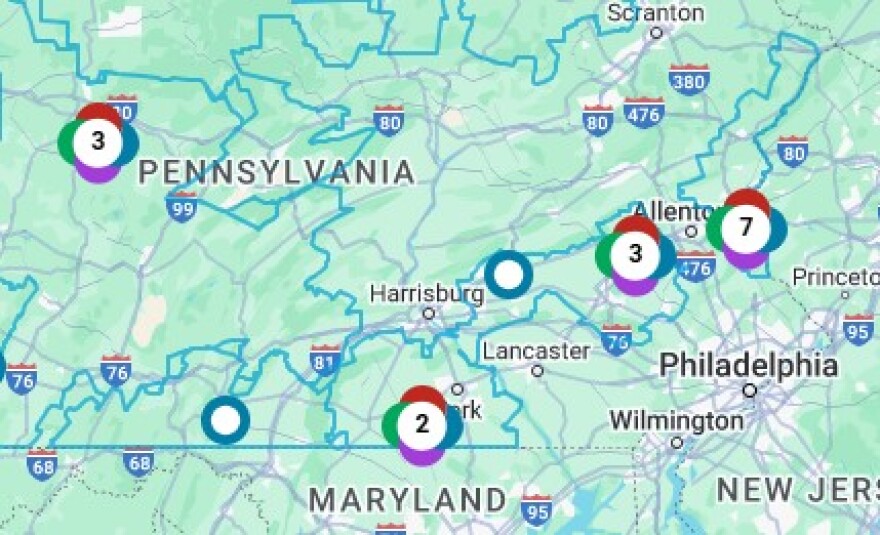BETHLEHEM, Pa. — Get a winter storm safety plan in place.
That's the best thing to do before the potential snow, ice and high winds predicted for Monday, according to Pennsylvania's Public Utilities Commission.
“Winter storms can be challenging, but a little preparation goes a long way,” said PUC Chairman Stephen M. DeFrank in a release Friday, Jan. 3.
“Planning ahead helps protect your family and your home, and it supports the hardworking crews and first responders working to keep us safe and restore utility service during harsh conditions.”
The PUC offers these tips:
- Plan Ahead: Have flashlights, extra batteries, bottled water, non-perishable food, and any necessary medications ready.
- Charge Up: Fully charge cell phones and other electronic devices in advance.
- Stay Informed: Monitor weather forecasts and utility updates through social media and your local news outlets.
- Report Issues: Report outages or downed power lines directly to your utility company. Avoid approaching or touching any downed lines.
- Be Safe with Generators: Use generators only outdoors, away from windows and doors, and never in enclosed spaces to avoid carbon monoxide poisoning.

As for most common power outage issues – the answer is almost always “trees,” said Nils Hagen-Frederiksen, PUC communications press secretary in an email Saturday.
"Falling trees or tree limbs bringing down power lines and/or utility poles is consistently the #1 cause for service disruptions (in the Lehigh Valley and across the state). Ice and snow build-up on trees and wires, along with high winds, can compound those issues."Nils Hagen-Frederiksen, PA PUC press secretary
"Falling trees or tree limbs bringing down power lines and/or utility poles is consistently the #1 cause for service disruptions (in the Lehigh Valley and across the state). Ice and snow build-up on trees and wires, along with high winds, can compound those issues."
When it comes to restoration, Hagen-Frederiksen said each utility has plans aimed at restoring services – focusing on work that restores the largest number of customers in the shortest period, but also accounting for restoration to critical facilities.
"Utilities also have plans and systems to call for assistance from other regions, other utilities, and sometimes other states, depending on the need," he added.
"Your local utilities can talk you through those specifics."

Shortly before 3 p.m. Saturday, before any inclement weather had arrived, Hagen-Frederiksen noted there were roughly two dozen isolated power outages showing on PPL and Met-Ed maps.
"As for most common issues – the answer is almost always 'trees,' he said in an email Saturday.
"Falling trees or tree limbs bringing down power lines and/or utility poles is consistently the number one cause for service disruptions (in the Lehigh Valley and across the state). Ice and snow build-up on trees and wires, along with high winds, can compound those issues."
Beyond the above tips, Hagen-Frederiksen advises:
- For individual consumers, it is extremely helpful to report outages directly to the utility. Grids and systems are getting smarter, but first-hand reports help clearly identify impacted areas – so don’t assume that the utility “knows” about your outage, or that someone else has already reported it.
To report PPL outages online, click here.
Or call 1-800-342-5775
To report Met-ed outages online, click here.
Or call 1-800-545-7741 - Also understand that the problem causing your outage may not be in your immediate neighborhood, so you might not see crews working close to your home – but restoration work in another location may be necessary before crews can tackle other repairs.
- Finally, keeping clear of downed lines and slowing down if you’re traveling are always good safety tips. Crews may be working around the corner or over the next hill, and you don’t want to endanger your family and those workers. Additionally, traffic accidents can damage poles and wires, causing further problems.
Across the state and region, utilities crews and equipment are already in place ready to respond to outages quickly.
During storm emergencies, the PUC monitors utility operations closely to ensure a swift and coordinated response to restore service.
It also urges drivers to use caution when traveling near utility crews working to restore service. Give crews plenty of room to work safely and slow down in work areas to protect both workers and the public, it says.


